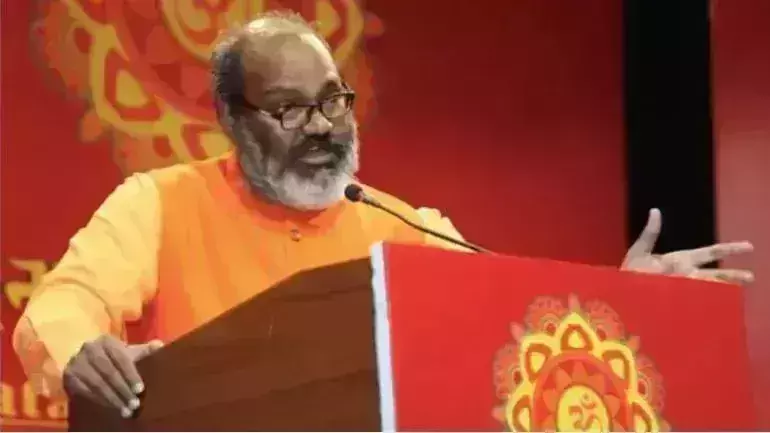
Out on bail, Yati Narsinghanand booked again for hate speech in Delhi
text_fieldsNew Delhi: Here is another hate speech case against Yati Narsinghanand who was just out on bail following an inflammatory speech at a three-day 'Dharam Sansad' held in Haridwar last December.
His bail condition wanted him not be part of any event or gathering aimed at creating difference between communities, according to the Indian Express.
Delhi Police on Sunday registered an FIR against Yati Narsinghanand and others for inflammatory speech at a "Hindu Mahapanchayat" in the capital city.
The FIR registered at the Mukharjee Nagar police station said speakers including Suresh Chauhanke, Chief Editor of Sudarshan News uttered words prompting disharmony, feelings of enmity, hatred or ill-will between two communities.
Yati Narsinghanand reportedly told a gathering of 500 attending the 'Hindu mahapanchayat' that if a Muslim was made prime minister 50 per cent of Hindus would change their faith in the next 20 years.
If India were to get a Muslim PM, 40 per cent of Hindus would be killed, he said, and asked the crowd to be manly to change the situation.
He allegedly told the crowd that Hindus would have to have more children and be taught to fight. He asked people to watch the movie 'The Kashmir Files' in order not to have a fight between Hindus and Muslims.
Hindus would have to leave their lands, daughters, property behind like the Kashmiri people had done and they would have to escape and drowned in the Indian Ocean, the only option they have, he told the crowd.
Yati Narsinghanand, a priest at Dasna Devi temple, allegedly delivered this provocative speech at the mahapanchayat organised in Delhi's Mukherjee Nagar area here.
The FIR was filed under sections 153A [Promoting enmity between different groups on grounds of religion, race, place of birth, residence, language...] and 188 of the Indian Penal Code, India Today reported.
A video of Yeti Narsinghanand delivering the speech went viral on Sunday, wherein he was heard urging people to take up arms to protect their sisters and daughters.






















